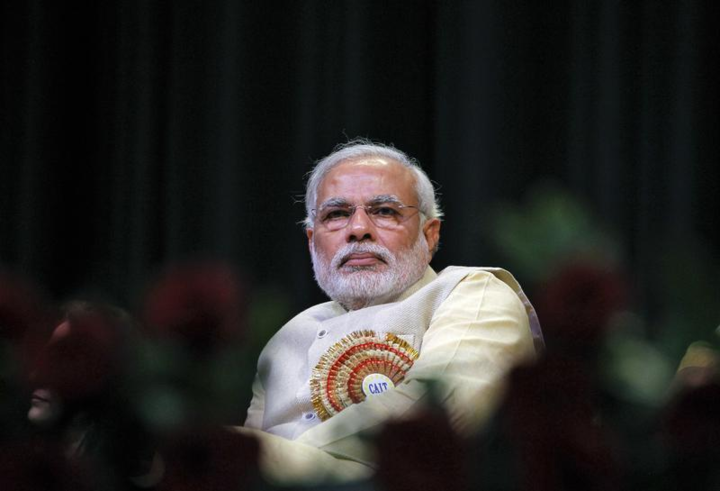
What good is this power that these countries boast of when it is not good enough to be used to resolve global problems? What good are even the speeches of the world leaders who come and occupy the rostrum of the world’s greatest forum to speak, and yet make no mention of the over 800,000 people of Kashmir who have been incarcerated in their homes for the last 55 days. Are these leaders living on the same planet? A planet where they, as great powers, have been promoting the grand strategy of liberal hegemony and a world order based on respect for international institutions and human rights. If the resolutions of the UN Security Council on Kashmir cannot be respected and implemented, then why have this forum at all?
Conflict-ridden regions like South Asia will continue going with the same or lesser pace towards lack of opportunities, inequality and poverty if no power or force is applied from the outside. Great powers must play their role to resolve the outstanding inter-state conflicts like Kashmir and change the deadlocked and stagnant political and economic future of this region. If states in South Asia have to grow and develop under an environment that provides equal opportunities to all, then the absolute freedom that regional hegemons like India enjoy to create hurdles in such a growth and development, must be stopped. The last SAARC summit was held in 2014 in Kathmandu. Formed in 1985 with the purpose of promoting the economic, social and cultural growth and development in the region, the organisation has become dysfunctional due to the Indian preference of cutting down diplomatic ties with Pakistan and not dealing with it directly or indirectly even through this regional organisation.
India continues to use disinformation and false propaganda to undermine the political and economic prestige and dignity of Pakistan. It is utilising maximum non-military means to project Pakistan as a state that continues to sponsor terrorism. While Pakistan had a difficult past, its sincere attempts to create a stable present and a hopeful future is being negatively contested and blocked by India. This creates a contradiction of interests between the two nuclear powers in this region at the heart of which is the unresolved issue of Kashmir.
People of Pakistan have now been suffering for a very long time because of the inability of the great powers to resolve this contradiction. Yuval Noah Harari writes in his book, Sapiens: A Brief History of Humankind that “the medieval society could not manage to square chivalry with Christianity”. What the modern world also lacks is its inability to rightly distinguish between freedom and equality. States like India are free to get away even with murder (we will only know what the Indian security forces have done in Kashmir when the curfew is ultimately lifted) because they showcase an attractive economic market, while countries like Pakistan are not heard as it doesn’t project possibilities for the world economy like India does.
India has a war-mongering PM today and he carries an abstract concept of war in his head; a concept in which the military actions of his military commanders are not aligned with the political outcomes — or so it seems because it is most unlikely that the people of Kashmir who are the recipient of Indian violence and brutality would allow India to attain its political aim in Kashmir.
Modi believes at this stage that it has the bull by its horns. Not realising that once Hitler too thought like him. Germany became a huge story of the “collapse of middle ground”. A story much like PM Modi built around Hitler’s abstract construct of war which ended as soon as it encountered reality, with the country ending up fighting real war on three fronts. War ceased to remain an extension of Hitler’s politics as well as policy as it resulted in a humiliating German defeat. Hitler believed in the exclusivity of the German race much like PM Modi’s Indian ideology of Hindutva which derives its existence from a similar belief. If Hitler failed can Modi succeed?
As PM Imran Khan believes that the US can play a role in resolving the Kashmir dispute, I would like to remind President Donald Trump about a few sayings of his predecessors. President John F Kennedy, during his inaugural address on January 20, 1961, called on his country to “pay any price, beat any burden, meet any hardship, support any friend, and oppose any foe, in order to assure the survival and success of liberty”. What he called for was a “new endeavor — not a new balance of power but a new world of law”. Speaking to the UN General Assembly one month after the assassination of Kennedy, president Lyndon Johnson affirmed the same unconditional global commitment saying, “Any man and any nation that seeks peace and hates war and is willing to fight the good fight against hunger and disease and misery will find the Unites States of America by their side, willing to walk with them, walk with them every step of the way.”
Pakistan has been an American ally and fought wars for it in the past. PM Imran Khan terms the new relationship between Pakistan and the US as “partners in peace”. Pakistan seeks peace and it is hoped that the US will play its role not only to guarantee that to Pakistan, but to this region which sits on the brink of a nuclear conflict.
Published in The Express Tribune, September 29th, 2019.
Like Opinion & Editorial on Facebook, follow @ETOpEd on Twitter to receive all updates on all our daily pieces.
1729662874-0/One-Direction-(1)1729662874-0-405x300.webp)


1722421515-0/BeFunky-collage-(19)1722421515-0-165x106.webp)







COMMENTS
Comments are moderated and generally will be posted if they are on-topic and not abusive.
For more information, please see our Comments FAQ